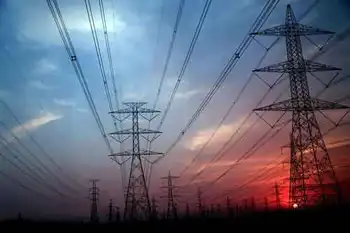Dim outlook for nuclear industry
By Toronto Star
Protective Relay Training - Basic
Our customized live online or in‑person group training can be delivered to your staff at your location.

- Live Online
- 12 hours Instructor-led
- Group Training Available
But that growth, according to an independent report released recently, simply isn't happening. After 10 years of industry cheerleading, the world's fleet of nuclear reactors has become smaller.
"There has been, in fact, a decline in the contribution of nuclear power to the world electricity production, from 16.7 per cent in 2000 to 13.5 per cent in 2008," said the report, the result of a three-year study by the Centre for International Governance Innovation in Ottawa.
The centre was founded in 2002 by Jim Balsillie, co-chief executive of Research In Motion Ltd. of Waterloo.
"The industry is struggling to quickly reverse a profound stagnation that has occurred since the boom years of the 1970s and 1980s."
And it's likely to struggle for at least the next 20 years, it added. "Significant expansion of nuclear energy worldwide to 2030 faces constraints that, while not insurmountable, are likely to outweigh the drivers of nuclear energy."
Louis Fréchette, chair of the centre's "Nuclear Energy Futures" project, said the findings are based on "exhaustive" consultations with industry experts and a thorough review of industry literature.
Asked what the conclusions mean for Canada, she warned officials against making unrealistic assumptions.
"If the future of the Canadian industry rests on the major expansion of nuclear demand worldwide, then I think you have to be careful. What we're saying is that it would be wise to make prudent assumptions as to the size of the market."
The report comes as the federal government is shopping around the commercial reactor business of crown-owned Atomic Energy of Canada Ltd., designer of the Candu reactor. The company was put up for sale in December, to "reduce the financial risks carried by taxpayers," the report says.
Sources said a number of parties – domestic and foreign – have signed non-disclosure agreements to access Atomic Energy's financial information. It's unclear whether a deal is imminent, but insiders expect an agreement will be announced in two months.
A major setback for Atomic Energy has been its inability to secure a sale in Ontario, which has indefinitely suspended plans for a new nuclear plant at Darlington.
The reluctance in Ontario isn't unique, according to the think-tank, which cites ambitious but slow-moving nuclear expansion plans in countries such as China, India, Japan and the United States.
"Close examination of each country's preparations and progress to date elicits caution," it states, citing rising construction costs, labour shortages, the potential for overruns and delays, and ongoing concerns related to the storage of nuclear waste.
"Most promoters and critics agree that the economics of nuclear power is the single most important constraint on nuclear expansion. The economics are worsening rather than improving, especially as a result of the recent global financial and economic turmoil."
Fréchette said nuclear power is also facing stiffer competition from alternatives such as wind, solar, energy efficiency and conservation, and the move to build smart grids that allow smaller sources of power to be located closer to consumers.
"New approaches to distributing electricity are not going to be very favourable to nuclear," she said.
By 2030, these alternatives are likely to pose an even greater threat to the nuclear industry, according to the report. "Research and development is proceeding at such a pace for most of these alternatives that improvements in performance and cost will likely arrive faster than for nuclear technology."











